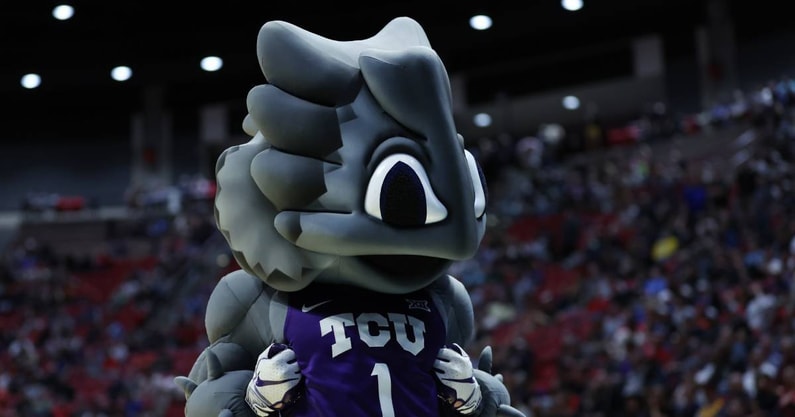TCU, Kent State stand out in women's basketball 'buy game' results

In a four-day span in November, TCU‘s women’s basketball team lost home games to USF and Sam Houston. The former game contract stipulated a $10,000 game guarantee owed to the Bulls and the latter featured a $20,000 guarantee to the Bearkats.
Guarantee games, or “buy games,” are a necessity in college basketball as programs with more resources often pay lesser-resourced programs in exchange for the former hosting the latter. In Division I women’s basketball, game guarantees are often in the low five figures.
High-major programs typically pay a mid or low-major opponent between $20,000 and $30,000. This season, Oregon State paid as much as $40,000 for a single-game guarantee, while Iowa paid as much as $38,000. Game guarantees are paid regardless of outcome but they can help contextualize a program’s performance in the non-conference portion of its schedule.
In an analysis of nearly 450 women’s basketball exhibition and regular-season game contracts from the 2022-23 season, the $30,000 that TCU paid in game guarantees to opponents that ultimately beat the Horned Frogs in Fort Worth was the highest total in the country.
The total could be even higher but TCU is exempt from public records requests as a private institution. The Horned Frogs also lost at home to Missouri State.
In the 384 regular-season games analyzed, the school that received the guarantee payment won just 16 times, or just more than four percent of the time. It’s notable when a school wins multiple buy games when it’s on the receiving end of a guarantee or for a school to lose multiple buy games if it’s the party in the contract that pays the guarantee.
Compared to men’s basketball, where Louisville lost four buy games in which it paid its opponents a combined $340,000, there are fewer buy games in women’s basketball and the guarantees are lower.
Methodology for calculating buy game expenses
On3 received non-conference game and tournament contracts from 119 Division I women’s basketball programs through public records requests. Private institutions are exempt from public records laws, but game contracts for matchups between a public school and private school can provide a window into how much the latter spends on game guarantees.
On3’s buy game database includes exhibition and regular-season, non-conference games in which the game contract details exactly how much one school agreed to pay another. Guarantee payments are often made through third-party event organizers, which can retain a portion of the guarantee as revenue, so these games weren’t included it was unclear exactly how much money one school received.
Top 10
- 1New
Jaydn Ott
Top RB enters transfer portal
- 2Trending
Angel Reese
Reacts to Hailey Van Lith
- 3Hot
Nico Iamaleava
Odds out on next team
- 4
Hunter, Sanders
Colorado jerseys retired
- 5
J.D. Vance
VP drops Ohio State trophy
Get the On3 Top 10 to your inbox every morning
By clicking "Subscribe to Newsletter", I agree to On3's Privacy Notice, Terms, and use of my personal information described therein.
Due to private schools and some state laws that limit public records requests only to residents, this database isn’t an exhaustive list of non-conference games from this season.
In multi-team events (MTEs) where one school paid another a guarantee in exchange for playing multiple games, only games between the host school and the visiting school were included. The total guarantee was divided by the number of games in the event and applied to the single game between the host and visitor.
TCU leads schools that paid the most in buy games lost
Here are the programs that lost the non-conference buy games that had the largest associated game guarantees.
1. TCU: $30,000
2. Oklahoma State: $27,000
T-3. Kentucky, Texas A&M: $25,000
T-5. Cincinnati, DePaul: $20,000
Schools that received the most in buy games later won
The following schools won buy games that came with the largest guarantees, highlighted by Kent State‘s win over Oklahoma State. For reference, last season, UC Davis won a buy game against Oregon that came with a $30,000 guarantee.
1. Kent State: $27,000
T-2. Murray State, Rice: $25,000
T-4. Cleveland State, Illinois-Chicago, Sam Houston: $20,000